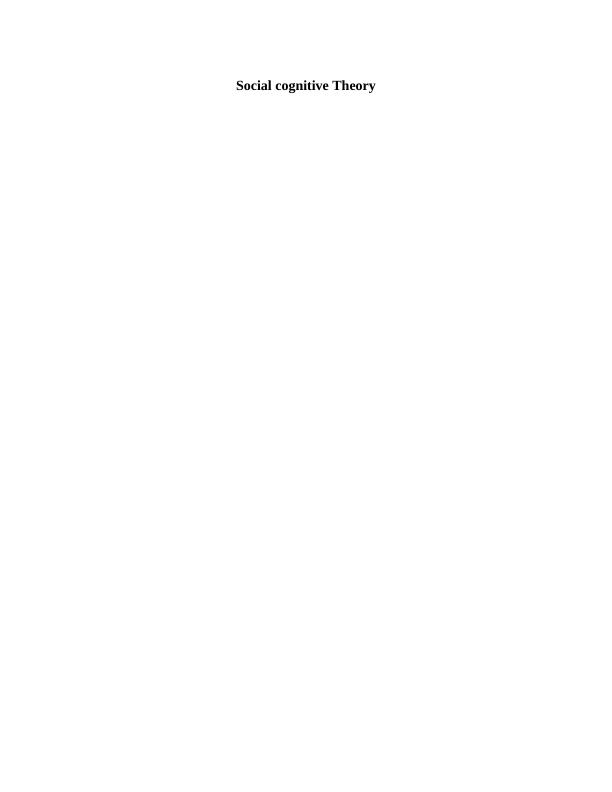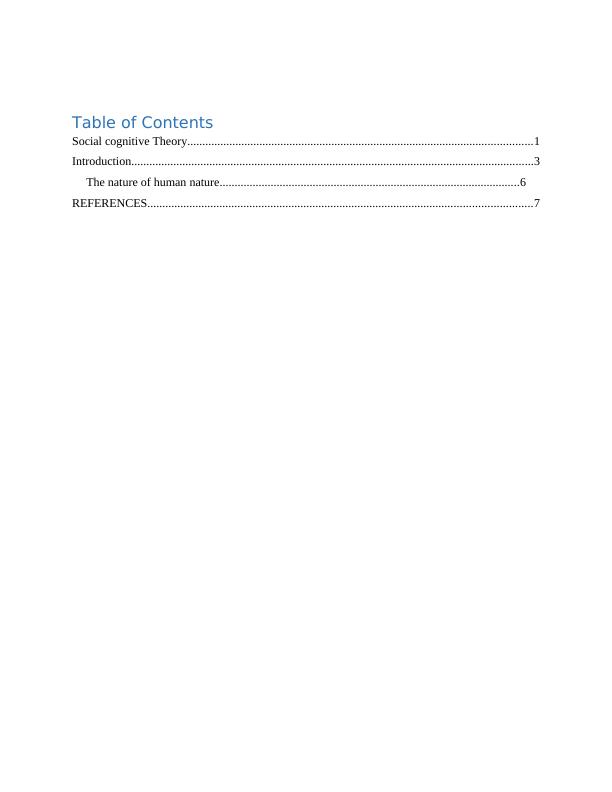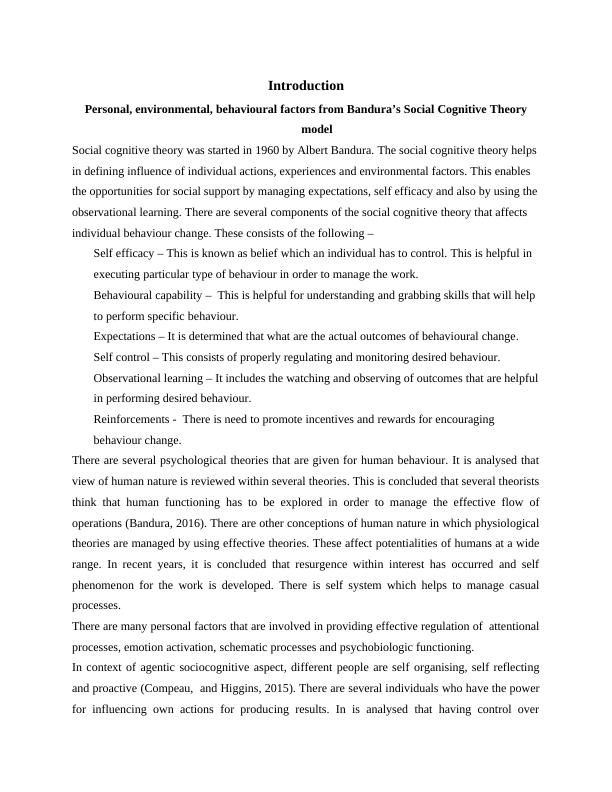Social Cognitive Theory
Added on 2022-12-27
7 Pages1822 Words35 Views
End of preview
Want to access all the pages? Upload your documents or become a member.
Personal, Environmental, Behavioural Factors from Bandura’s Social Cognitive Theory Model
|3
|1182
|24
Social Cognitive Theory Assesment Report
|7
|1625
|7
The internal and external stimulus
|7
|1776
|13
Social Cognitive Theory and its Application in Organizational Behaviour
|7
|1846
|91
Entrepreneurship: Self-Efficacy and Business Performance
|8
|2004
|39
Understanding Human Behaviour through Bandura's Social Cognitive Theory
|9
|1897
|29



